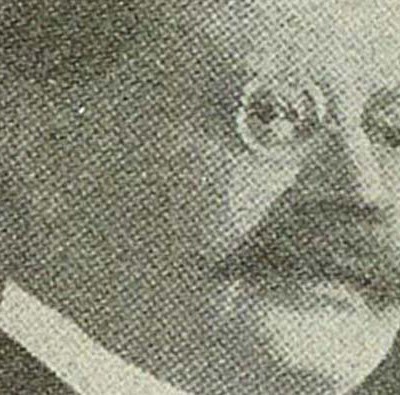
Jacob and Fannie Rosenbloom lived in Suwalki, on the border of Poland and Lithuania. They had eight children, Solomon, Morris, Mayer, Ida, Sarah, Goldie, Anna and Eva. Solomon “Sol” Rosenbloom (1866-1925) immigrated to the United States about 1886. Being of military age, he was unable to emigrate legally, so he sneaked across the border, out of Poland. Most of the family later followed him. One sister stayed in Poland.
Rosenbloom came to Pittsburgh to join his relative Cass Sunstein. Like Sunstein, he entered the wholesaler liquor trade, opening a store in old Allegheny City. He later used the proceeds from his business to fund a successful move into banking and finance.
A descendant of the Vilna Gaon, Rosenbloom had studied in yeshivas in Slonim and Zaludok. In Pittsburgh, he became an advocate for Jewish education. Along with Rabbi A. M. Ashinsky, he was one of the 20 charter members of the Hebrew Institute in 1916, and he served as the president of the Jewish educational center for its first nine years. In 1923, the Hebrew Institute became the site of the Sol Rosenbloom Teacher’s Training School, which later became the Louis I. Aaron Hebrew High School. The Sol Rosenbloom Library, also located at the Hebrew Institute, held the largest collection of Judaica in the region for many years. After Rosenbloom died unexpectedly, the Hebrew Institute commissioned Samuel Rosenberg to paint a life-size portrait of him.
Sol Rosenbloom served as president of the Tree of Life Congregation. He was related to Rabbi Solomon Neches, who became the first rabbi of Congregation B’nai Israel in 1913.
In their later years, Sol and his wife Celia Rosenbloom (c.1874-1947), who had immigrated to Pittsburgh from Germany as a young woman, became known for their philanthropy in Pittsburgh and in pre-statehood Palestine. In 1921, for their 25th wedding anniversary, they donated $100,000 to various charities. The following year, Sol Rosenbloom donated $250,000 to the Palestine Development Fund. He later donated $250,000 to help found Hebrew University in Jerusalem, which opened in 1925.
Avid Zionists, Sol and Celia Rosenbloom made a pioneering five-month visit to Palestine in 1922 on behalf of Louis Brandeis and Julian Mack of the Palestine Development Council. He was charged with finding investment opportunities to hasten the establishment of a Jewish homeland. “We really were the first ambassadors to Palestine,” Celia Rosenbloom told the Jewish Criterion in 1934. Upon their return, Sol Rosenbloom wrote an account of their trip titled, “A Practical View of the Palestine Problem.”
Sol and Celia Rosenbloom had three children, Charles, Arthur and Estelle.
Charles Rosenbloom (1898-1973) was a lawyer and president of the Rosenbloom Finance Corporation. Like his father, he also became a noted philanthropist, focusing on local charities and Zionist causes. With a charge from David Ben-Gurion, he raised funds in the mid-1940s to purchase military equipment and supplies to assist the incipient State of Israel. In 1953, he recruited Bessie Katz to chair the women’s committee of Israel Bonds. Rosenbloom was also a noted art collector. He sat on the Carnegie-Mellon University board of trustees from 1940 until his death 1973, during which time he established the C. J. Rosenbloom Fine Arts Collection and bequeathed many rare books to the institution. He became a trustee of the Carnegie Institute in 1939 and donated a large collection of prints to the Carnegie Museum. The museum featured many of those prints in the 2014 exhibit Small Prints, Big Artists: Masterpieces from the Renaissance to Baroque.
Sol Rosenbloom’s brother Mayer Rosenbloom started a wholesale liquor operation on Federal Street in old Allegheny City and was a president of Congregation Beth Israel of the North Side. His sister Ida Rosenbloom married Louis Jay Stein, who managed the Pittsburgh branch of the G. L. Miller & Company Bank. Their son Abraham C. Stein was a local politician and member of the Pennsylvania House of Representatives.